Generally speaking, grass is a great groundcover for dogs. It’s soft to the touch, it doesn’t present any serious toxicity issues, and–as long as you mow it on a reasonably frequent schedule–it’s unlikely to harbor many ticks or other pests.
Nonetheless, some grasses are undoubtedly better for homes with dogs than others. Some types, for example, are less likely to be harmed by your dog’s urine, while others will hold up to heavy traffic better than others.
We certainly don’t expect anyone to go rip up their existing lawn so it can be replaced with some other type of grass, but if you are currently making significant landscaping changes, you may want to think about the type of seed or sod you put down.
We’ll talk about the dog-grass relationship below, explain the differences between the various grass options, and give you a few tips for keeping your yard looking great.
How Dogs Destroy Lawns
Dogs can damage your grass in a few key ways, and it’s important to identify the way your dog is harming your lawn so you can take steps to protect it. Or, if you end up needing to replace your lawn, you’ll know what type of grass to choose.
Some of the most common ways that dogs destroy lawns include:
Peeing
Dogs will usually urinate several times a day, particularly if they have free access to the yard. Dog urine is made up of a handful of major ingredients, including something called urea – one of the byproducts created during the metabolism of protein.
Urea contains a ton of nitrogen. Nitrogen is an important resource for grass and other plants, as it helps them produce new tissues and grow (nitrogen is the primary component of most fertilizers).
But, excessive amounts of nitrogen will “burn” plants, and, in the case of your lawn, this will cause patches of grass to turn brown and die.
Some owners opt to train their dog to only pee and poop in one specific spot to limit some of the damage done. While this is certainly a great strategy, it may take some effort to teach your dog the new potty game plan, and some sections of your lawn will still get ruined.
Filling an area with dog-friendly mulch or a corner with artificial grass and teaching your pet to potty there is one great strategy to alleviate that issue!
There are also some strategies you can use to fix dog urine spots on your lawn, but they involve significant effort and may require regrowing grass.
Pooping
Poop also contains some nitrogen, but the biggest problem relates to the moisture and bacteria it contains. This can disturb the soil microflora and encourage the growth of harmful bacteria and fungi.
Your dog’s waste can also represent a pretty significant biohazard if you don’t clean it up regularly, so get out there with a pooper scooper and patrol your yard.
Digging
A lot of dogs like to dig – they’ll dig at their beds, they’ll dig at their water bowls, and many dogs seem to pick a particular part of your lawn where they focus most of their attention.
If you’re lucky, your dog will pick some out-of-the-way location to dig, but unfortunately, they often seem to prefer areas that are at least adjacent to your lawn.
Digging holes not only damages the grass blades and rips up the roots, but it does a fair bit of damage to the underlying soil too. Exposing the soil to the air like this can dry it out, and your dog’s repetitive pawing may compact the soil, making it difficult for the grass to recolonize the area.
Running
A running dog’s paws can crush grass blades and dislodge swatches of turf. Running usually only causes problems when dogs repeatedly run across the same stretch of land.
That’s why you might find bare patches near fences and in the places connecting your dog’s favorite spots (such as the back door and his dog house).
You can limit this damage by trying to encourage your dog to use the entire yard. If you keep your dog attached to a runner or a tie-down, try to move the tether periodically to spread out the damage.
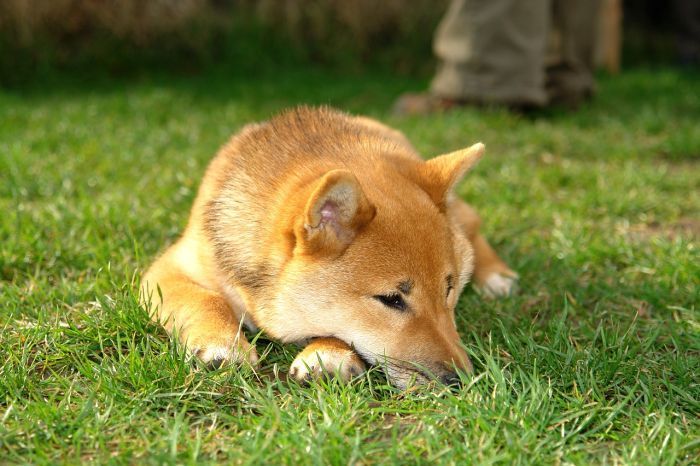
What Characteristics Make for a Dog-Proof Lawn
We’ll talk about a few of the best grasses for homes with dogs in a minute, but first, we want to explain the characteristics that give these grasses an edge.
Some of the primary things you want to look for include:
- Rapid Growth Rate. All lawns will suffer some damage when your dog runs, jumps, and plays on it – there’s just not a lot you can do about this. One of the best ways to keep your yard looking great is to select a grass that grows quickly, as this will help it recover from the damage rapidly.
- Deep Root Development. Grasses that have deep root systems will tend to weather damage better and recover more quickly. Additionally, deeply rooted grasses will sometimes discourage digging behaviors.
- Well-Matched to Your Climate. If you don’t pick a good grass species for your property, your lawn will likely be stressed before your dog sets food on it. Give your lawn the best chance for survival by picking one that is perfectly suited to your climate and the amount of sun exposure your yard receives.
Hardy Grasses That Can Cope with Your Dog
Lawncare experts recommend a variety of different types of grass for homes with dogs, but the following four are among the most commonly mentioned.
1. Kentucky Bluegrass
Kentucky Bluegrass is one of the hardiest grasses available, and it thrives in most growing locations. Its rapid growth rate, hardy nature, and ability to recover quickly after being trampled make it a great choice for many owners. Kentucky Bluegrass is also quite attractive, which provides additional value.
2. Perennial Ryegrass
Perennial ryegrasses usually produce a fairly robust root system and grow very quickly. They’re often best suited to cool climates, where they make one of the best choices for homes that count a dog among the residents.
3. Fescue
There are a variety of different fescues available, so you’ll have to pick a good variety for your climate. However, as a group, fescues tend to be hardy grasses. They exhibit excellent moisture-absorbing properties and generally handle the indignities your dog will dole out. Many fescues are capable of growing in shaded areas.
4. Bermuda
Bermuda is a popular choice among those living in warm climates, and it rarely needs supplemental irrigation. It’s also the perfect choice for high-traffic areas since it’ll usually tolerate your dog’s paws pretty well. However, like all other grasses, it’ll appreciate a break from time to time to heal and recolonize bare areas.
Do note that Bermuda grass tends to become dormant and turn brown during the winter when temperatures drop below about 55 degrees. It will come back to life (so to speak — it doesn’t actually die), once warm weather returns.
5. Zoysia
One of the more luxurious grasses for your pup’s paws (as well as your feet), Zoysia is another popular choice for homes with dogs. Zoysia is reasonably drought tolerant and hardy once established, but it often requires four or more years to get a solid foothold.
Tips and Tricks for Keeping Your Dog Safe and Your Grass Beautiful
No matter what type of grass you select, there are a few things you can do to help keep your lawn looking its best. Some of the most effective ways to do so include:
Dilute Your Dog’s Pee
One way to reduce the damage caused by your dog’s nitrogen-rich urine is to hose down the area right after your dog pees. This will help dilute the amount of nitrogen and reduce the damage caused.
You can also protect your lawn even more by simply taking your dog for a walk first thing in the morning and after you return home from work.
Your dog’s urine will typically be most concentrated, so a nice walk will give them a chance to flush out all of that nitrogen somewhere other than your yard.
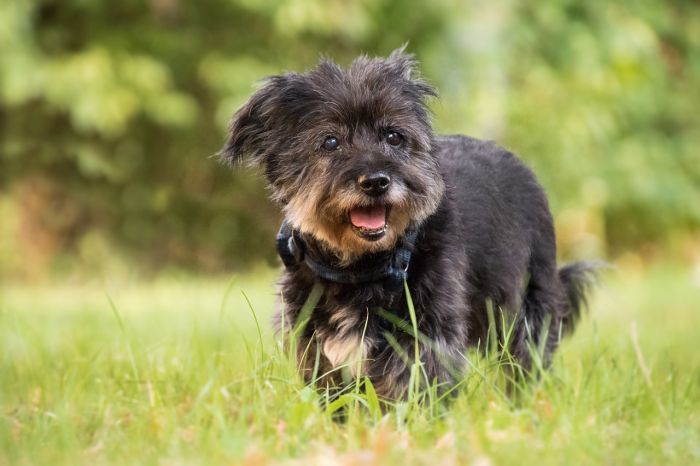
Pick Up Your Dog’s Poop
First of all, you should regularly patrol and clean your yard, as a build-up of pet waste can cause a number of very serious health problems for your dog and your family (as well as potentially attract coyotes).
But aside from this, cleaning your yard and disposing of dog poop regularly will help keep your grass healthier.
Like urine, dog poop is also full of nitrogen. This can create the same types of problems that frequent urination does.
Try to Encourage Your Dog to Enjoy the Full Yard
If you spread out your dog’s impact on the lawn (including the physical wear-and-tear caused by his activity and the chemical assault poop and pee represent), it’ll give the grass a better chance to recover. It isn’t always easy to accomplish this, but you should do your best to try.
Don’t Let Dogs Play on Wet Grass
Any type of high-impact activity will cause more damage to a wet lawn than a dry one, so try to keep your dog from zooming around the backyard following rain or watering.
Besides, letting your dog play on a wet lawn essentially guarantees a huge mess in your home once you let him come back inside, and you’ll likely to have to break out the paw washer.
Don’t Allow Your Dog Outside After Spraying Your Yard with Chemicals
A little incidental contact with an organic, pet-safe fertilizer is probably not likely to cause huge health issues, but if your dog rolls around in some or eats any, it may lead to pretty big problems.
Pesticides and herbicides probably represent an even more acute danger, so you should definitely follow all label instructions and keep your dog off the lawn for the recommended period of time.
Also be sure to read up on pet-safe weed killers, as some treatments are much more dog-friendly than others.
Take Advantage of Problematic Growing Spots
Most lawns will have an area or two that – for whatever reason – struggle to nurture a thick carpet of grass. Instead of lamenting these problematic patches, try to put them to good use by trying to encourage your dog to use these places.
You may want to put his dog house or tie-down stake in these areas, or you could simply try to confine play to these barren areas.
What kind of grass do you use in your yard? Did you think about your pooch when making the decision? Have you experienced any particularly difficult challenges?
Let us know all about your experiences in the comments below!
If you’re on the quest for a dog-proof yard, also make sure to read our articles on dog-friendly shrubs and dog-safe flowers.
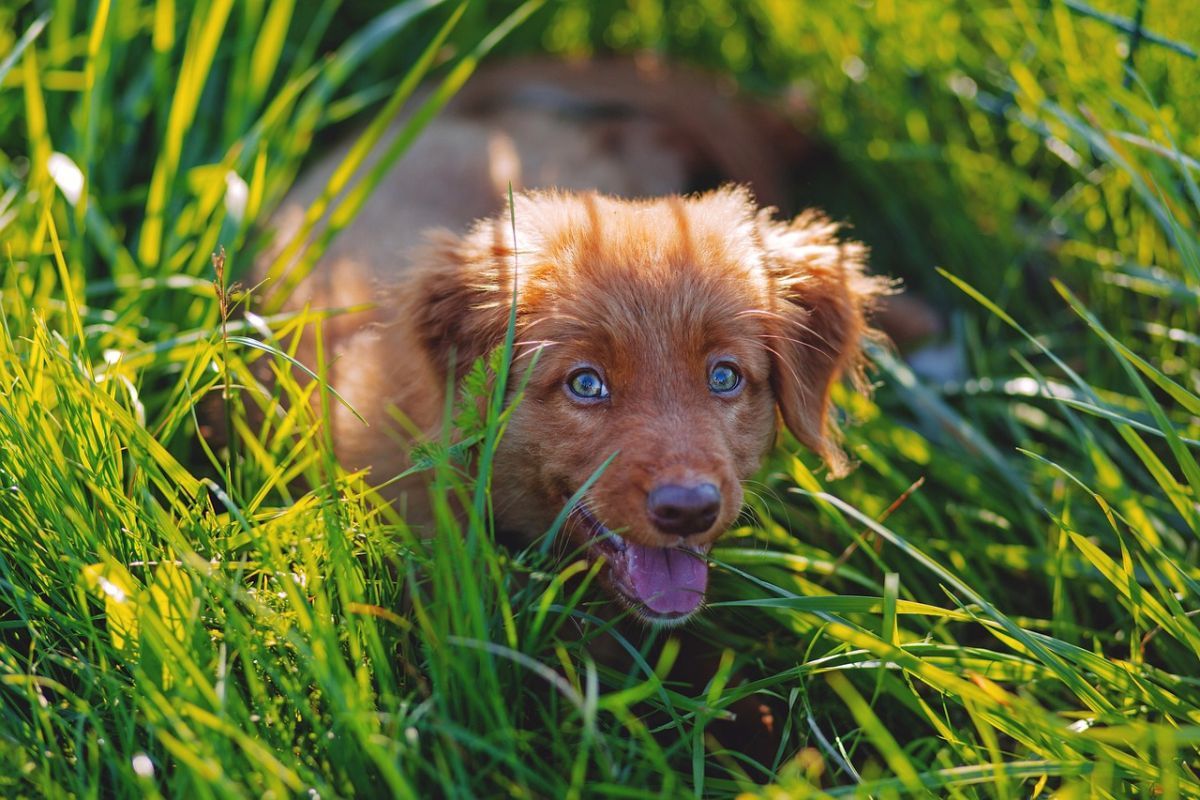

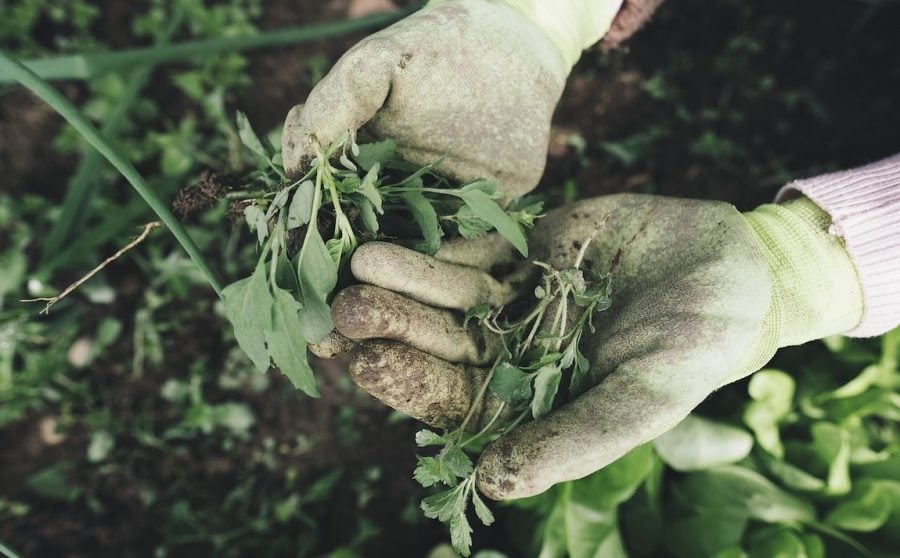


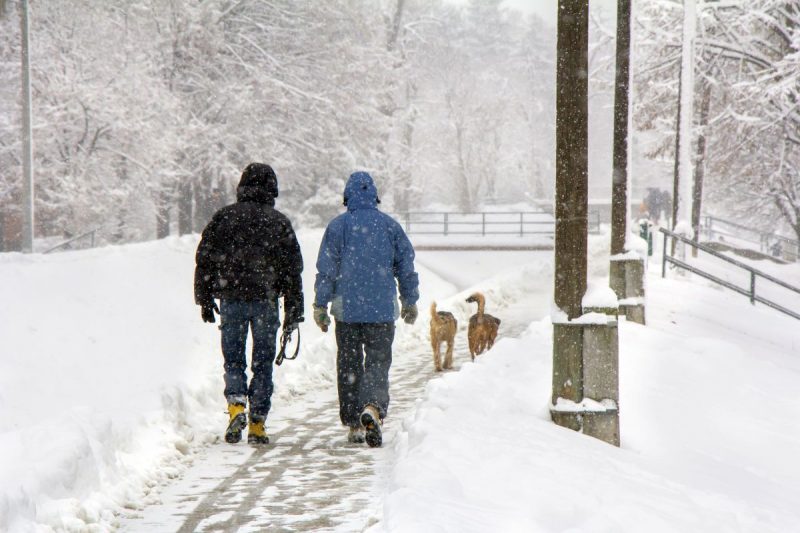
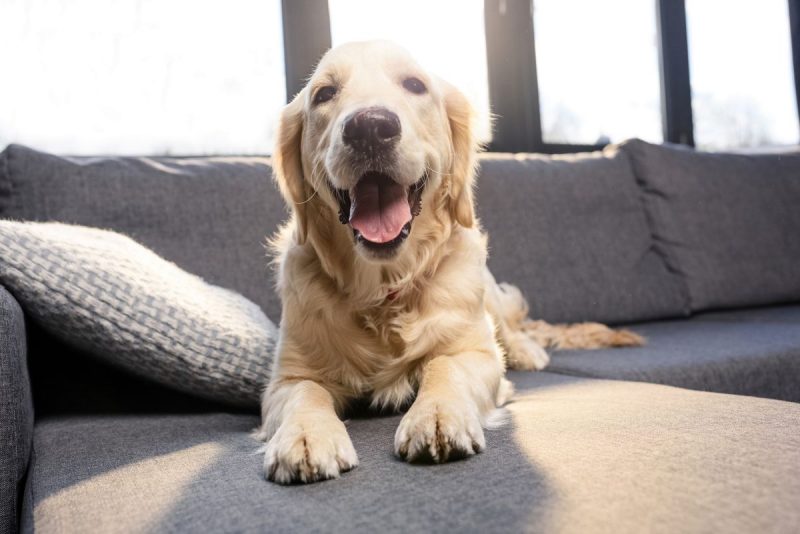
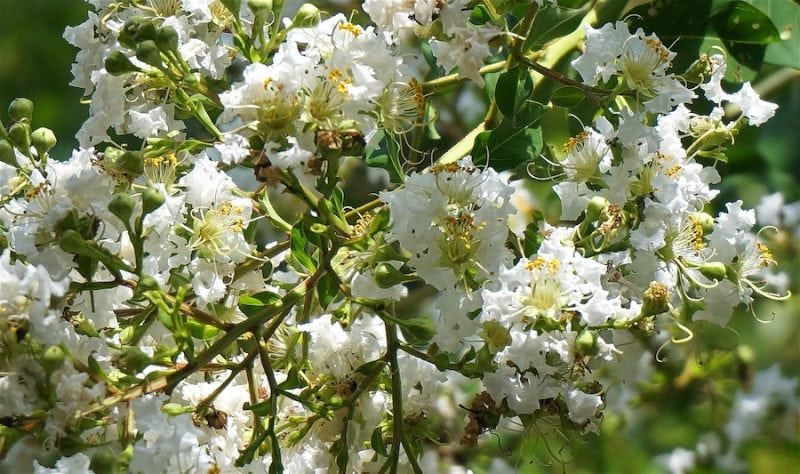

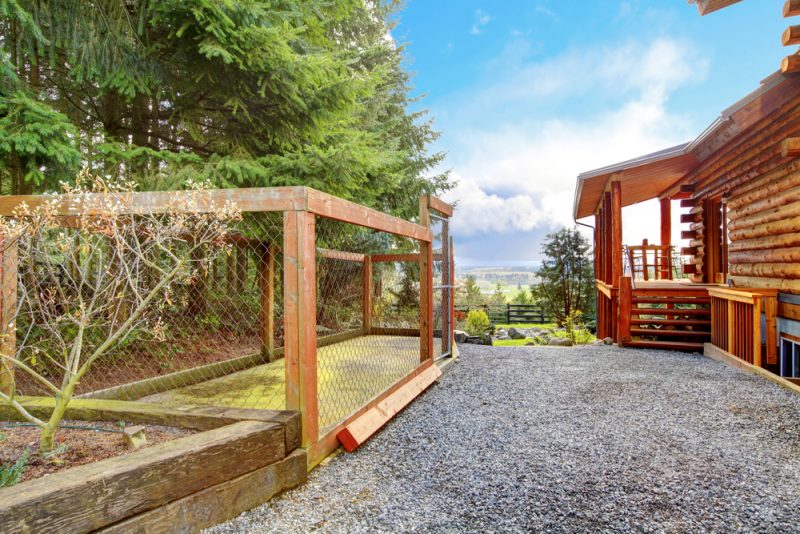
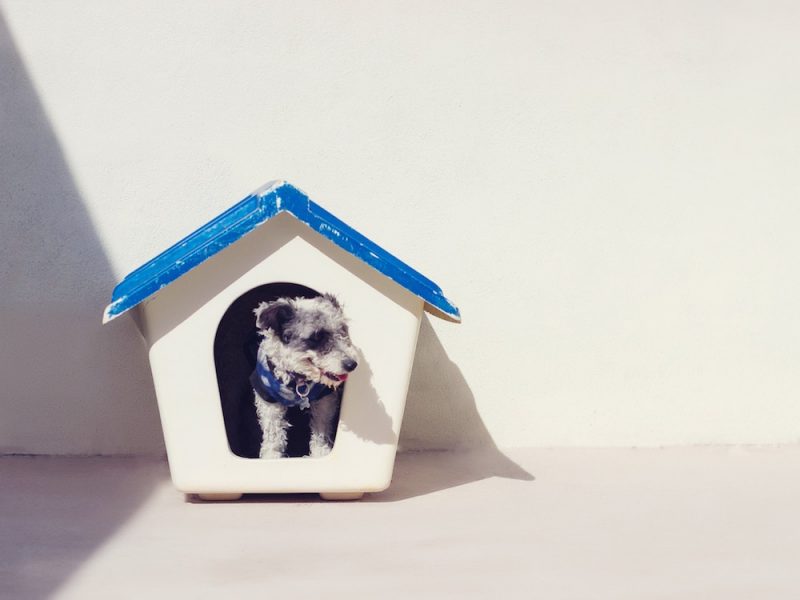

Leave a Comment